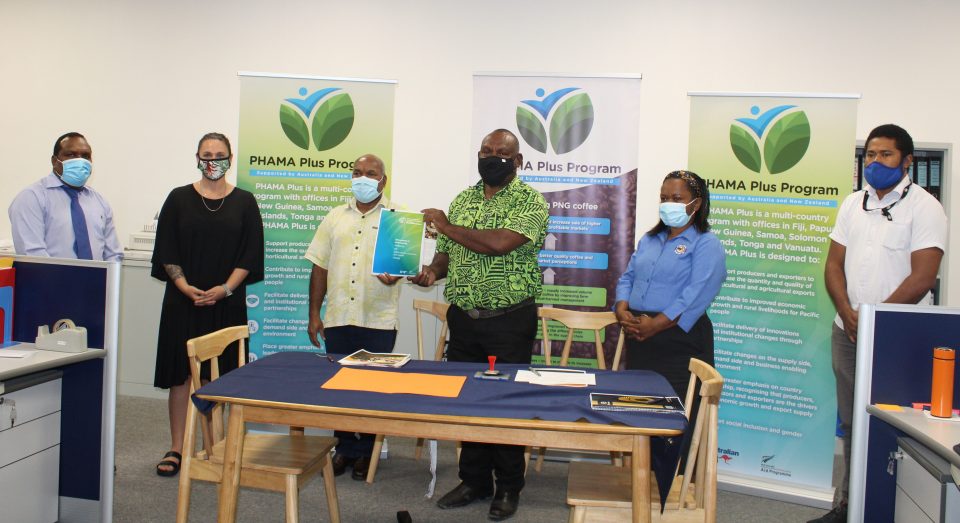Coffee farmers in PNG can expect increased incomes for coffee productions. This follows the signing of an MoU between the Coffee Industry Corporation Limited and Pacific Horticultural and Agricultural Market Access Plus (PHAMA Plus).
Through this Australia and New Zealand supported collaboration, PHAMA Plus will provide technical support to those involved in the value chain to help increase the volume of good quality coffee exported to high-value specialty and differentiated markets.
CIC Acting CEO, Charles Dambui, said this work will be implemented based on the existing cooperation between CIC and PHAMA Plus.
“We’re pleased to continue our work with PHAMA Plus to support the implementation of regulatory improvements and explore opportunities to position PNG coffee to be more competitive.”
“This means maintaining quality control at all steps of the value chain, from production to processing and to export,” said Dambui.
The MOU aims to support the implementation of new national green bean (grading) standards and trade facilitation at export points in collaboration with CIC and Productive Partnerships in Agriculture Program (PPAP) Coffee Component.
CIC will be working with PHAMA Plus to increase the number of qualified cuppers and qualified CIC and industry officials to provide high-quality inspection services to PNG coffee exporters in the new designated export points.
According to PHAMA Plus, Senior National Facilitator, Alex Kerangpuna, the MoU also aims to improve productivity among smallholder farmers, while shifting production where possible to pursue certified and specialty trade.
“We’re strengthening our work with CIC, as a government entity, to ensure that regulatory practices such as the new green bean grading standards are effectively implemented and PNG coffee exporters and farmers benefit from improved coffee prices, especially in specialty and differentiated markets, and increased exports,” Mr Kerangpuna said.
“Under this collaboration, PHAMA Plus will also support CIC to boost the industry’s marketing, communications and business skills, as well as strengthen the role of the PNG Coffee Industry Working Group (CIWG), and participation and interests of women coffee farmers and associations.”
Coffee is the second most important agriculture cash crop in PNG after palm oil and is cultivated by over half a million households around the country – almost three million Papua New Guineans rely on coffee for their livelihoods.


